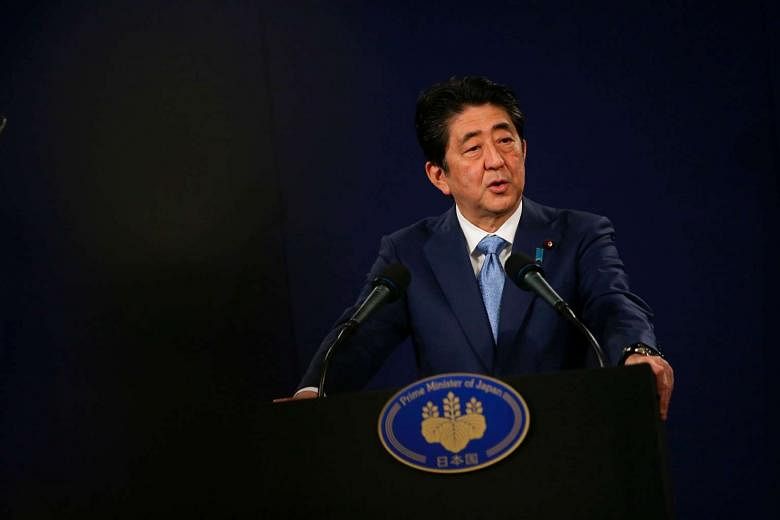TOKYO (AFP) - Prime Minister Shinzo Abe on Wednesday (May 3) announced plans to seek the first-ever changes to Japan's post-war pacifist constitution and said he wants the revisions to take effect in 2020.
The changes, which would spell out the status of the nation's "self-defence" military forces, were announced as Japan marked the 70th anniversary of the constitution written by American occupiers.
The charter, which renounces Japan's right to wage war, has been championed by progressives as a pacifist symbol born out of the country's World War II defeat.
But nationalists seeking an overhaul are gearing up for a major new push as concerns grow over North Korean belligerence.
In a video message to a gathering marking the commemoration, Mr Abe said he aims to revise the constitution by 2020 when Tokyo will host the summer Olympics.
"I want to make 2020 a year when a new constitution will be enforced," Mr Abe said without elaborating.
He said the revision should include a new clause acknowledging Japan's Self-Defence Forces (SDF) as constitutional.
"We should eliminate room for discussions suspecting the SDF is unconstitutional," Mr Abe said.
Mr Abe, however, denied any plan to revise Article 9, which stipulates that the Japanese people forever renounce war as a sovereign right and that land, sea and air forces will never be maintained.
The government says this does not stop the country from maintaining an ability to defend itself, and thus to possess defence forces.
Despite the "peace constitution", Japan established the SDF in 1954, a year after the end of the Korean War.
That conflict left Japan on the Cold War frontline between the West and the Soviet Union and China.
While the constitution has never been amended, post-war governments have interpreted it in ways that have effectively loosened some of its constraints - such as recognising the SDF as a means to secure Japan's right to defend itself.
Pro-amendment parties can muster the two-thirds majorities necessary in both houses of parliament to pass constitutional changes.
But these would be subject to a national referendum for final approval and that is seen as the biggest hurdle.
Public opinion polls shows broad acceptance of the "peace constitution" as a whole, although views are divided on the hot-button issue of Article 9.

